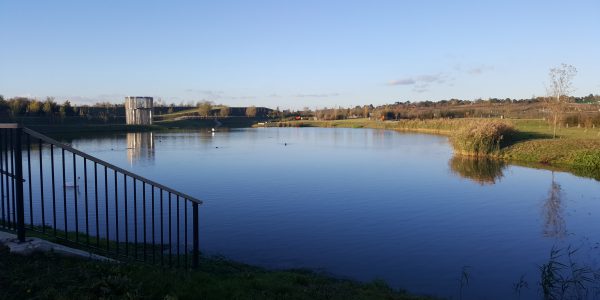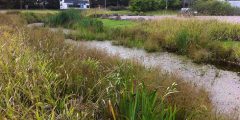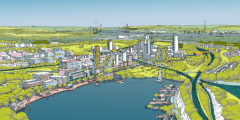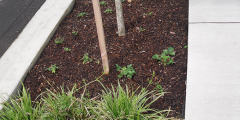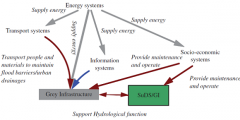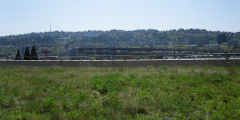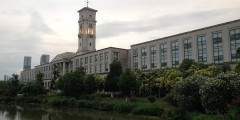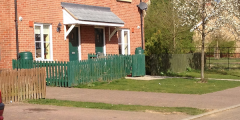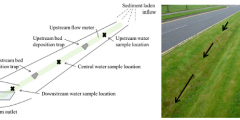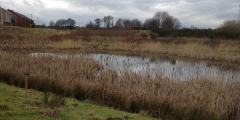Government’s latest review of sustainable drainage: a box-ticking exercise reinforcing a suboptimal state of affairs?
May 2, 2019
The Ministry of Housing, Communities and Local Government’s (MHCLG) review of current planning policy for sustainable drainage (SuDS) was published in August 2018. Could this exercise have more to do with validating the Government’s current policy approach, rather than an accurate review of the application and effectiveness of planning policy for sustainable drainage systems? Tudor …
SUDSnet International conference and network
September 18, 2018
In this blog Vladimir Krivtsov shares his very positive impressions of the recent SUDSnet conference, which he had the pleasure to attend at the end of August 2018. It took place at Coventry University, and was dedicated to the celebration of 15 years of SUDSnet’s existence. SUDSnet is a UK-wide network for researchers, practitioners, agencies, developers …
Using System Dynamics for Sustainable Water Management in Ebbsfleet: Part 2
September 12, 2018
In a previous blog (System Dynamics Part 1), we gave a presentation of the Ebbsfleet case study, summarised what delivering a System Dynamics model could entail and began the process of developing the model by defining the problem. In this blog post, we will go over the next step, the definition of metrics and variables, while …
Sustainable drainage systems: helping people live with water
October 19, 2015
Sustainable urban drainage systems, or SuDS, are increasingly acknowledged as an effective means of surface water management that ‘makes space for water‘ and utilises surface water as a resource rather than a nuisance. The increasing number of SuDS installations has led to potential shifts in the perception and attitudes towards these assets. This study, recently …
System interactions of stormwater management using SuDS and GI
September 9, 2015
Stormwater management solutions, such as Sustainable Urban Drainage Systems (SuDS) and Green Infrastructure (GI), interact widely with the urban landscape and a series of interdependencies between different urban infrastructure (e.g. water management, energy, telecommunications and information technology) influence the success of strategies to manage urban flood risk and stormwater and potential modification of the urban …
Improving urban flood resilience by sustainable drainage retrofit
July 23, 2015
Dr Jessica Lamond (Faculty of Environment and Technology, University of the West of England) and colleagues have recently published a new paper in Proceedings of the Institution of Civil Engineers (ICE) – Urban Design and Planning. This links with Dr Lamond’s research as part of the Blue-Green Cities WP2c (Behavioral Responses of Individuals and Institutions). They investigated whether retrofitting …
Blue-Green Cities Knowledge Exchange Workshop and Symposium, Ningbo China, 15-18th June 2015
June 25, 2015
Members of the Blue-Green Cities Research Consortium, including Prof Colin Thorne and Dr Emily Lawson, School of Geography, University of Nottingham (UoN), headed over to the Ningbo China Campus (UNNC) for a week of knowledge exchange, project dissemination, engagement with City officials and cultural learning. The Ningbo event, entitled Blue-Green Cities: Integrated Approaches to Urban …
Public Perceptions of Water Butt Usage for Flood Risk Management
May 14, 2015
As global urbanisation continues to occur, many urban areas are experiencing an increased risk from surface water flooding due to a reduction in permeable land and failure of surface water drainage systems (Lamond et al., 2012; Mitchell, 2012; CIRIA, 2012). In existing urban areas it can be hard to fit some of the more intensive sustainable …
Urban Sediment Transport through an Established Vegetated Swale: Long Term Treatment Efficiencies and Deposition
April 13, 2015
Deonie Allen (Heriot-Watt University) and colleagues have recently published a new paper in Water on their research as part of Blue-Green Cities WP2b (Sediment, Debris and Habitats). They investigated sediment transport through a vegetated swale, which can be classified as a sustainable urban drainage system (SuDS) and are present in many urban built environments. The team …
Analysing public perception and biodiversity of SuDS
March 5, 2015
Among the scientific community, sustainable urban draining systems (SuDS) are becoming increasingly popular due to the significant advantages that these systems present in terms of biodiversity, amenity, water quality, and flood risk management. However, the public may not be aware of these advantages. The importance of public support for the implementation of any community project …

